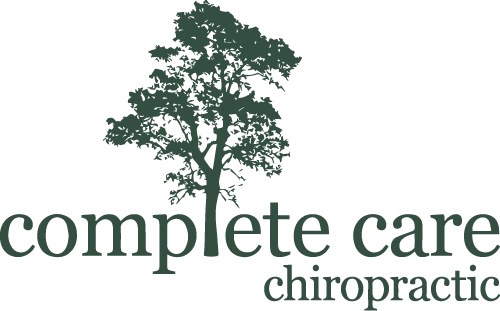In today’s fast-paced world, pain management has become a crucial aspect of maintaining a healthy and fulfilling lifestyle. With the increasing prevalence of chronic pain conditions, many people are seeking alternatives to conventional medical treatments that often rely heavily on medications and invasive procedures. At Complete Care Chiropractic & Neuropathy Clinic in Owasso, we believe in a holistic approach to pain management that addresses the root causes of discomfort and promotes overall well-being.
Holistic pain management is not just about alleviating symptoms; it’s about understanding and treating the underlying factors contributing to pain. This approach considers the physical, emotional, and psychological aspects of an individual’s health, recognizing that these elements are interconnected and all play a role in the experience of pain. By integrating conventional medical practices with alternative therapies, we create comprehensive treatment plans tailored to each patient’s unique needs. This method not only aims to reduce pain but also to enhance the body’s natural healing abilities and improve overall quality of life.
Our holistic approach is grounded in the belief that the body has an innate ability to heal itself when provided with the right support. Rather than relying solely on medications that can come with unwanted side effects and risks, we incorporate a variety of therapeutic modalities that work together to support the body’s healing processes. These include chiropractic care, physical therapy, massage therapy, acupuncture, nutritional counseling, and mind-body techniques. Each of these therapies plays a vital role in managing pain and promoting health, and when combined, they offer a powerful and effective solution.
In this blog, we will explore the key components of holistic pain management and the many benefits it offers. Whether you are dealing with chronic pain, recovering from an injury, or looking to improve your overall health, our holistic approach can help you achieve your goals. Read on to learn more about how holistic pain management can lead to a healthier, pain-free life and why it might be the right choice for you.
Understanding Holistic Pain Management
Holistic pain management is an integrative approach that considers the whole person—mind, body, and spirit—rather than just focusing on symptoms. This philosophy recognizes that pain is a complex experience influenced by physical, emotional, and psychological factors. By addressing all aspects of a person’s well-being, holistic pain management seeks to provide more effective and sustainable relief.
The Mind-Body Connection
One of the core principles of holistic pain management is the recognition of the mind-body connection. Pain is not merely a physical sensation but also a subjective experience influenced by emotions, stress, and mental state. For instance, chronic stress and anxiety can exacerbate pain perception, while relaxation and positive mental states can help reduce it. Holistic approaches often incorporate techniques such as mindfulness, meditation, and cognitive-behavioral therapy to help patients manage their emotional responses to pain.
Integrating Conventional and Alternative Therapies
Holistic pain management combines conventional medical practices with alternative therapies to create a comprehensive treatment plan tailored to individual needs. Conventional medicine often focuses on diagnosing the underlying causes of pain and providing treatments such as medications, physical therapy, or surgery. While these methods can be effective, they may not address all aspects of a patient’s experience.
Alternative therapies, on the other hand, offer additional tools for managing pain and promoting healing. Techniques such as chiropractic care, acupuncture, massage therapy, and herbal medicine can complement conventional treatments, providing a more holistic approach to pain relief. By integrating these diverse modalities, holistic pain management offers a broader range of options to help patients find the most effective combination of treatments for their unique situation.
Enhancing the Body’s Natural Healing Abilities
A key goal of holistic pain management is to enhance the body’s natural healing abilities. The human body has an incredible capacity for self-healing, but this process can be hindered by factors such as poor nutrition, lack of exercise, and chronic stress. Holistic approaches aim to support and stimulate the body’s innate healing mechanisms.
For example, proper nutrition is essential for overall health and can play a significant role in pain management. Anti-inflammatory diets rich in fruits, vegetables, whole grains, and healthy fats can help reduce inflammation and pain. Regular physical activity not only strengthens muscles and improves mobility but also releases endorphins, which are natural painkillers produced by the body. Stress reduction techniques, such as yoga and meditation, can lower cortisol levels and promote relaxation, further supporting the body’s healing processes.
Personalized Care for Optimal Results
Holistic pain management emphasizes personalized care tailored to each individual’s unique needs and circumstances. No two people experience pain in exactly the same way, and what works for one person may not be effective for another. By considering the whole person, holistic practitioners can develop customized treatment plans that address the specific factors contributing to a patient’s pain.
This personalized approach often involves a thorough assessment of the patient’s physical condition, lifestyle, emotional health, and environmental influences. By taking the time to understand the full context of a patient’s pain, holistic practitioners can identify the most effective combination of treatments and interventions. This comprehensive approach not only helps to alleviate pain but also promotes overall well-being and enhances the quality of life.
The Benefits of a Holistic Approach
Holistic pain management offers several significant benefits that make it an appealing option for those seeking comprehensive and sustainable pain relief. By considering the whole person and integrating various therapeutic modalities, holistic approaches provide a more effective and well-rounded solution to pain management.
Comprehensive Care
One of the primary advantages of holistic pain management is its comprehensive nature. Traditional medical approaches often focus on alleviating symptoms without addressing the underlying causes of pain. In contrast, holistic methods consider physical, emotional, and psychological factors, providing a more complete solution. This comprehensive care ensures that all aspects of a person’s well-being are taken into account, leading to more effective and lasting pain relief.
For instance, a patient with chronic back pain might receive chiropractic adjustments to correct spinal misalignments, physical therapy to strengthen supporting muscles, massage therapy to reduce muscle tension, and counseling to address stress or emotional issues contributing to their pain. By addressing multiple dimensions of the patient’s condition, holistic care can lead to more substantial and enduring improvements.
Reduced Reliance on Medications
A significant concern with conventional pain management is the reliance on medications, particularly opioids, which can lead to dependency and a host of side effects. Holistic pain management aims to reduce or even eliminate the need for such medications by using natural and non-invasive therapies. Techniques such as acupuncture, chiropractic adjustments, and nutritional counseling can effectively manage pain without the risks associated with pharmaceuticals.
For example, acupuncture has been shown to release endorphins and improve blood flow, providing natural pain relief. Similarly, chiropractic care can correct structural imbalances, reducing pain and the need for pain medications. By incorporating these methods, patients can often experience significant pain relief without the dependency and side effects that come with long-term medication use.
Improved Quality of Life
Holistic pain management not only focuses on reducing pain but also on enhancing overall health and well-being. By promoting a balanced and healthy lifestyle, holistic approaches can improve various aspects of a person’s life, leading to greater overall satisfaction and happiness. Regular physical activity, proper nutrition, stress management, and mental health support are integral components of holistic care that contribute to an improved quality of life.
Patients who adopt holistic pain management strategies often report better sleep, increased energy levels, and enhanced emotional well-being. For instance, incorporating yoga or tai chi can improve physical flexibility, reduce stress, and provide a sense of calm and mental clarity. Nutritional counseling can lead to a healthier diet that supports overall health and reduces inflammation, further alleviating pain. By focusing on overall health, holistic pain management helps patients lead more active, fulfilling lives.
Sustainable Results
A key goal of holistic pain management is to achieve sustainable, long-term results by addressing the root causes of pain. Instead of providing temporary relief, holistic approaches aim to identify and treat the underlying issues contributing to pain. This could involve correcting postural imbalances, addressing nutritional deficiencies, or resolving emotional stressors.
For example, a patient suffering from chronic headaches might benefit from chiropractic adjustments to correct spinal misalignments, acupuncture to improve energy flow and reduce tension, and stress management techniques to address underlying anxiety or stress. By tackling these root causes, holistic pain management can lead to more lasting improvements, reducing the likelihood of pain recurrence.
Furthermore, holistic methods often involve educating patients about self-care practices and lifestyle modifications that support long-term health. Patients learn how to maintain proper posture, manage stress, and make dietary choices that reduce inflammation. This education empowers patients to take an active role in their health, leading to more sustainable results and a reduced need for ongoing professional intervention.
Conclusion
Holistic pain management offers a range of benefits that make it an effective and appealing option for those seeking comprehensive and sustainable pain relief. By addressing the whole person—mind, body, and spirit—holistic approaches provide comprehensive care, reduce reliance on medications, improve quality of life, and achieve sustainable results. At Complete Care Chiropractic & Neuropathy Clinic, we are dedicated to providing holistic pain management solutions tailored to your unique needs, helping you achieve lasting relief and a healthier, more vibrant life. If you’re ready to explore holistic methods for managing your pain, contact us today to schedule a consultation.

Ready for an expert opinion? Get in touch today!
Harmonize your health naturally by embracing one or a blend of these chiropractic Essentials. Our tailored chiropractic services are designed to guide you towards your individual journey of transformation. Begin your health transformation today with Complete Care Chiropractic.
Like this article? Spread the word!
Related Posts
December 11, 2024
Posture Matters: Daily Habits to Protect Your Spine in 2025
Discover expert tips for maintaining healthy posture in Owasso, OK. Protect your spine in…
June 19, 2024
Embrace Holistic Health with High-Quality Chiropractic and Corrective Care in Owasso
Experience high-quality chiropractic and corrective care in Owasso. Our personalized…
May 15, 2025
Expert Spinal Care & Neuropathy Treatment in Owasso | Chiropractor for Peripheral Neuropathy
Looking for expert spinal care and effective pain relief in Owasso? Complete Care…





